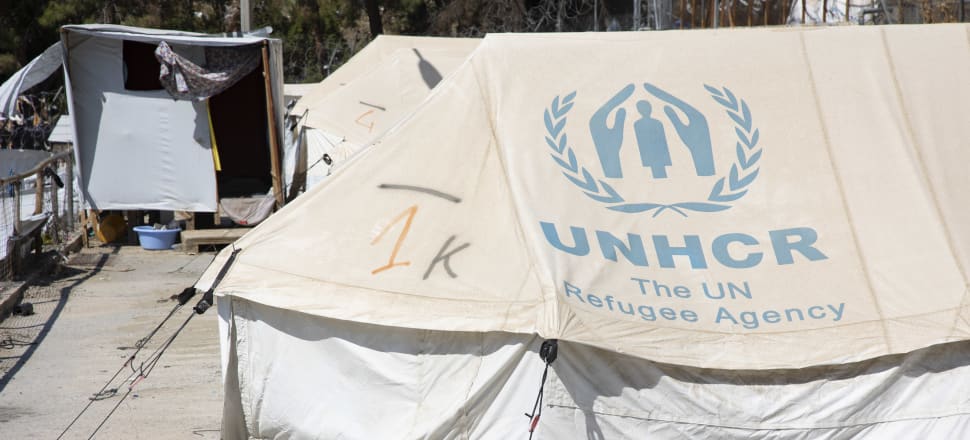
The Government has framed a law change around how to process 'mass arrivals' as helping New Zealand to better uphold its legal obligations – but a range of groups, including the UN's refugee agency, are lining up to argue otherwise
New Zealand’s plans to allow the warrantless detention of asylum seekers for up to 28 days have faced criticism from the United Nations’ refugee agency, which has urged the Government to reconsider its plans and take a less severe approach.
The Office of the United Nations High Commission for Refugees (UNHCR) has joined a wide array of domestic and international organisations expressing concern about the proposed crackdown.
READ MORE: * Inclusivity over prejudice: Immigration bill lacks human rights * Eyebrow-raising $25m to prevent 'boat people'
In March, Immigration Minister Michael Wood announced the Government would amend 2013 legislation to extend the amount of time any group of more than 30 people could be held without a court warrant, from 96 hours to as much as 28 days.
While Wood has argued the changes are necessary to give asylum seekers sufficient time to obtain legal representation, legal and human rights groups have argued the law breaches New Zealand’s international obligations.
“Refugees are frequently victims of torture or trauma and a detention environment for them – even for limited periods – can be harmful. It should be recalled that freedom from arbitrary detention is a fundamental human right." – UNHCR
In a submission to Parliament’s foreign affairs committee, the UNHCR, which safeguards the global rights of refugees, said the detention of asylum seekers was “inherently undesirable” and needed to be a measure of last resort.
“Refugees are frequently victims of torture or trauma and a detention environment for them – even for limited periods – can be harmful. It should be recalled that freedom from arbitrary detention is a fundamental human right and the detention of asylum-seekers beyond what is demonstrably necessary and proportionate is contrary to international law.”
All decisions to detain an asylum seeker must be based on a detailed and individualised assessment, considering whether there were “less invasive or coercive means of achieving the same ends”.
While the UNHCR recognised the arrival of several hundred asylum seekers over a short period would present challenges for New Zealand, planning for such an event “need not automatically involve a regime of detention”, the agency said.
“UNHCR urges reconsideration of the measures contained in the Bill as they relate to the increased permissible period of detention without warrant for asylum-seekers arriving as part of a mass arrival group.”
In its own submission, the New Zealand Law Society noted a previous report into the country’s processes for asylum claims had found significant difficulties with the legal aid system and the existing laws governing detention for small-scale cases.
“It follows that these deficiencies are likely to be exacerbated if 30 or more individuals required legal aid-funded advice on a mass arrival warrant of commitment,” society vice-president David Campbell said.
“The law must set the tone. The term ‘mass arrival’ is, in my view, neither accurate nor appropriate." – Peter Boshier, Chief Ombudsman
With little pressing need for the proposed changes, given New Zealand was an unlikely target for people smugglers, Campbell said it would be more appropriate to carry out wider reforms to address the structural shortcomings.
Chief Ombudsman Peter Boshier told the select committee he had concerns about the limited time provided for submissions on the law change, as well as the narrow consultation undertaken before it progressed.
Boshier said the bill needed to be reassessed, as both the current law and the proposed amendments were “in my view not compliant with international human rights law or guidance”.
Any ‘en masse’ detention of arrivals did not fit with the need to avoid arbitrary decision-making, and it was possible the Government’s changes would increase rather than reduce the chances of breaching New Zealand’s international obligations.
Boshier also had concerns about the Government’s use of the phrase “mass arrivals”, given the importance of language in discussions about migration.
“The law must set the tone. The term ‘mass arrival’ is, in my view, neither accurate nor appropriate. It is not clear what makes 30 people or more a ‘mass’.
“Each person arriving in New Zealand, in whatever circumstances, is an individual, with the same inherent rights.”
If it was necessary to distinguish individual asylum seekers from larger groups, the Government could use more precise and neutral language such as “people arriving in a group of 30 or more”, he said.

Green Party human rights spokeswoman Golriz Ghahraman told Newsroom the Government needed to withdraw the bill, which had attracted near-unanimous disdain from experts at home and abroad and was "an absolute waste of Parliament's time". "This is expanding an already terrible law in a quite outlandish way."
At a time when the world was opening its arms to refugees and asylum seekers from Ukraine, Myanmar and other areas, Ghahraman said it was striking that New Zealand was taking a more restrictive approach.
Immigration Minister Michael Wood told Newsroom there had been “significant misunderstanding surrounding the proposed changes”, which did not propose an automatic detention regime for mass arrivals.
Wood said New Zealand had one of the least restrictive immigration detention regimes when compared to the rest of the world, and the default position for asylum seekers was that there be “no restriction on their liberty at all, either on arrival or as soon as possible after arrival”.
“Our settings are based on holding people for the shortest amount of time under the least restrictive methods possible, while their security risk is assessed.”
The Government would develop a community management framework to help manage any asylum seekers and avoid unnecessary detention.
Accommodation options for potential arrivals ranged from MIQ-style housing to temporary accommodation providers, the Māngere refugee resettlement centre, and military bases.
Wood said he was open to exploring additional safeguards in the legislation as the select committee process continued.







